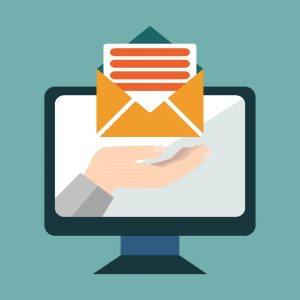
Has your accountant ever uttered the words “flat sales” or “margins are off” when discussing your business? If so, it’s time you act fast to improve your cash flow. Not doing so is what makes managing cash flow one of the top accounting problems reported by small business owners.
Why is cash flow so important for company growth? Simply put, money, specifically cash, makes the business world go round and without a strong financial picture to show investors, your business may be interpreted as one with “anemic gross profits and slow turnovers,” as James McNeill Stancill, a professor of finance at the University of Southern California, writes in the Harvard Business Review. Additionally, companies showing weak cash flow are not usually approved for external financing, which can be detrimental in times where more cash is needed for much-needed growth.
What exactly is cash flow? In its simplest explanation, cash flow is the amount of cash coming in and “flowing out” of your business. The longer businesses are able to delay the transferring out of their cash, amount owed to suppliers, while increasing cash transferring in, amount collected from customers, the stronger their financial footing.
To make revenue dreams a reality, businesses should seriously consider the below tips for improving cash flow:
- Get money in the door as quick as possible
Most small businesses suffer from payment delays for their products and services, according to a 2011 survey by PaySimple, which can greatly put their financial health at risk. The money owed to businesses, called accounts receivables, are basically investments made to customers and “represent sales that have not yet been collected in the form of cash,” according to a BizFilings’ definition. When this payment is collected late, it ties up the money in your account and creates shortages, impacts inventory and operating expenses, and negatively affects cash flow.
Tips on getting customers to pay you on time: Small business owners should consider invoicing early, using invoicing software, hiring a third party to make sure payments are received on time, performing credit checks on customers seeking credit, offering incentives for customers to pay early, penalizing them for paying late, following through on the collection process you have in place, and carefully measuring your average collection period.
- Slow down on payables for as long as possible
Contrary to collecting payments as soon as possible, you want to negotiate extended payment terms with suppliers without negatively affecting your relationship. Think about it this way: if you’re paying vendors too early and not receiving payments from customers fast enough, your cash flow is tied up somewhere in the pipeline. Without appropriate liquidity flowing both ways, your business’ bottom line is jeopardized.
For optimum cash flow management, carefully consider payment schedules and take full advantage or a creditor’s payment terms. If you have a good relationship with your vendor, negotiate better payment terms and consider asking for a net-60 or net-90 schedule instead of a net-30 one. This will allow you to hold on to cash, freeing it up in the event it’s needed to grow sales and expand operations.
Tips for retaining the longest use of your cash: To hold onto cash for as long as possible without hurting your credit, smart businesses should pay on the last day payments are due, use electronic funds transfer so you don’t forget to pay, formulate a plan before negotiating with suppliers, communicate honestly when doing your negotiations, and make your proposition mutually beneficial like increasing your order if they agree to lengthen payment terms.
- Keep a tight handle on inventory control
It may not sound like such a big deal to know how much inventory you need and when you need it, but not being able to do so is one of biggest reasons small businesses fail, according to the U.S. Small Business Administration. Still, 46% of small businesses don’t use any kind of system to track their inventory. As a result, the excess merchandise and supplies sitting around due to poor inventory management is as deleterious as business owners simply “burning money,” Marcus Lemonis warned on his CNBC show The Profit. Losing track of inventory negatively affects cash flow and not having enough goods on hand will put your reputation at risk with consumers.
Tips on properly managing inventory: The better small business owners can forecast their sales and the costs associated with it, the better they can manage their inventory. Forecasts accurately by looking at previous sales over the past 12 months and identifying trends month-by-month, advises this post in SageWorks.
If you’ve ever wondered where all the cash has gone, take a closer look at your cash flow. Improving cash flowing both ways and keeping a tight handle on inventory, which controls which way cash is flowing, should be a priority for all businesses, but especially smaller ones where cash is always needed and financing is crucial.
(172)
Report Post







